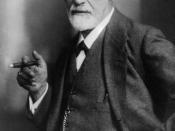The philosophy of science is the study of how science goes about its own business, that is, how science obtains knowledge. Knowledge must be obtained gradually. How knowledge is obtained, and even what knowledge really is, remains controversial. One aspect of scientific activity that all philosophers of science seem to agree on is the dialectical nature of scientific knowledge. In other words, it seems clear that scientists are in a constant swing between adherence to rules of proper scientific conduct such as methodologies, theories, hypothesis, and the rejection of these same rules to adopt new ideas. The philosophy of psychology also closely monitors contemporary work conducted in cognitive neuroscience, evolutionary psychology, and artificial intelligence, questioning what they can and cannot explain in psychology. Philosophy of psychology is a relatively young field, due to the fact that psychology, under the Scientific Method, came to dominate psychological studies beginning in the late nineteenth century.
In his 1932 lecture on psychoanalysis as "a philosophy of life" Freud commented on the distinction between science and philosophy: 'Philosophy is not opposed to science, it behaves itself as if it were a science, and to a certain extent it makes use of the same methods; but it parts company with science, in that it clings to the illusion that it can produce a complete and coherent picture of the universe, though in fact that picture must needs fall to pieces with every new advance in our knowledge. Its methodological error lies in the fact that it over-estimates the epistemological value of our logical operations, and to a certain extent admits the validity of other sources of knowledge, such as intuition'(Cooper et al, 1998). Many psychological theories derived from philosophical thoughts and ideas. This essay explores some of these theories which stem from philosophical assumptions.
Sigmund Freud's...


